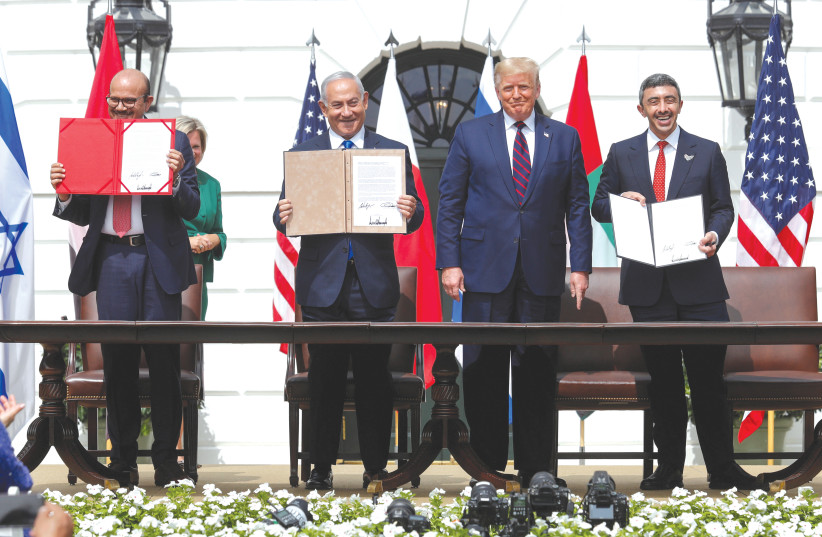Several signs now point to the possibility of an escalation in tensions ahead of the High Holy Days, as Palestinian activists continue to warn of a hunger strike.
A rocket was fired on Sunday from the northern West Bank, the latest in a number of small firings. The terrorist groups are trying to project an image of being able to turn it into a kind of mini-Gaza Strip.
Meanwhile, in Gaza itself, Hamas and other terrorist groups continue to play with fire along the border. According to reports, a Qatari envoy recently visited the Strip, which could calm tensions. But that is only one factor in larger Hamas calculations, which are impossible to analyze without factoring in Iran.
How does this benefit Iran's agenda?
Overall, the Iranian threat to try to increase tensions on multiple “fronts” against Israel is one of the hallmarks of this year’s rising conflict with the Palestinians, and it comes at an auspicious time. Not only are Rosh Hashanah, Yom Kippur, and Sukkot coming up in the next few weeks, there are the anniversaries of the Abraham Accords and the Oslo Accords.
Hamas and its backers in Iran want to send messages that undermine peace agreements, making the timing very specific. Beirut-based Al Mayadeen news channel, which is pro-Iranian, is even trying to encourage a hunger strike, and that could lead to other provocations.

“Lately, there have been growing indications that a war against Israel may break out in September or October 2023,” Yigal Carmon wrote in an article published by the Middle East Media Research Institute (MEMRI) nearly two weeks ago.
The important analysis suggested that “the trigger may be spiraling violent clashes resulting in many casualties, or the use of new weapons leading to many fatalities on the Israeli side, in the face of which Israel will be unable to suffice with its regular counterterrorism measures.”
Hezbollah and Hamas may be preparing a confrontation, he said.
Other calculations involved
Iran and its proxies follow Israeli media closely, looking for signs of weakness and internal division, including about the protests and challenges in the IDF.
These kinds of reports are usually laundered or re-reported on Al Mayadeen satellite TV or Iran’s Fars News Agency and Tasnim News Agency. For instance, Tasnim on Sunday published an article that said Israel is on the brink of “anarchy,” trying to make Israel appear to be in decline and that the “axis of resistance” can relax because it doesn’t need to act yet, but rather, it needs to wait.
Iran’s key proxies have been meeting more regularly this year in “tripartite” meetings of Palestinian Islamic Jihad, Hamas, and Hezbollah, together with Iran, which are designed to unify the Iranian-backed “fronts.”
The Alma Research and Education Center also ran an article in late August, suggesting that Iran might trigger a new crisis.
“In the past two weeks, Israeli security forces have intercepted two attempts to smuggle explosives into Israel,” the article said. “An Iranian fingerprint on these efforts was evident.”
“In the first case, which was reported on August 24, Israeli Arab citizens were caught with Claymore-type explosives in the central Israeli city of Lod,” it said. “Security forces identified a direct link to Hezbollah and an attempt to recruit Israeli citizens for the task of smuggling the explosives and transferring them to terror cells or terrorists in Israel.”
The concern is serious for escalation over the next few weeks, and it could come from several different provocations together at the same time, or a calculated effort by Iran, to stoke tensions.
